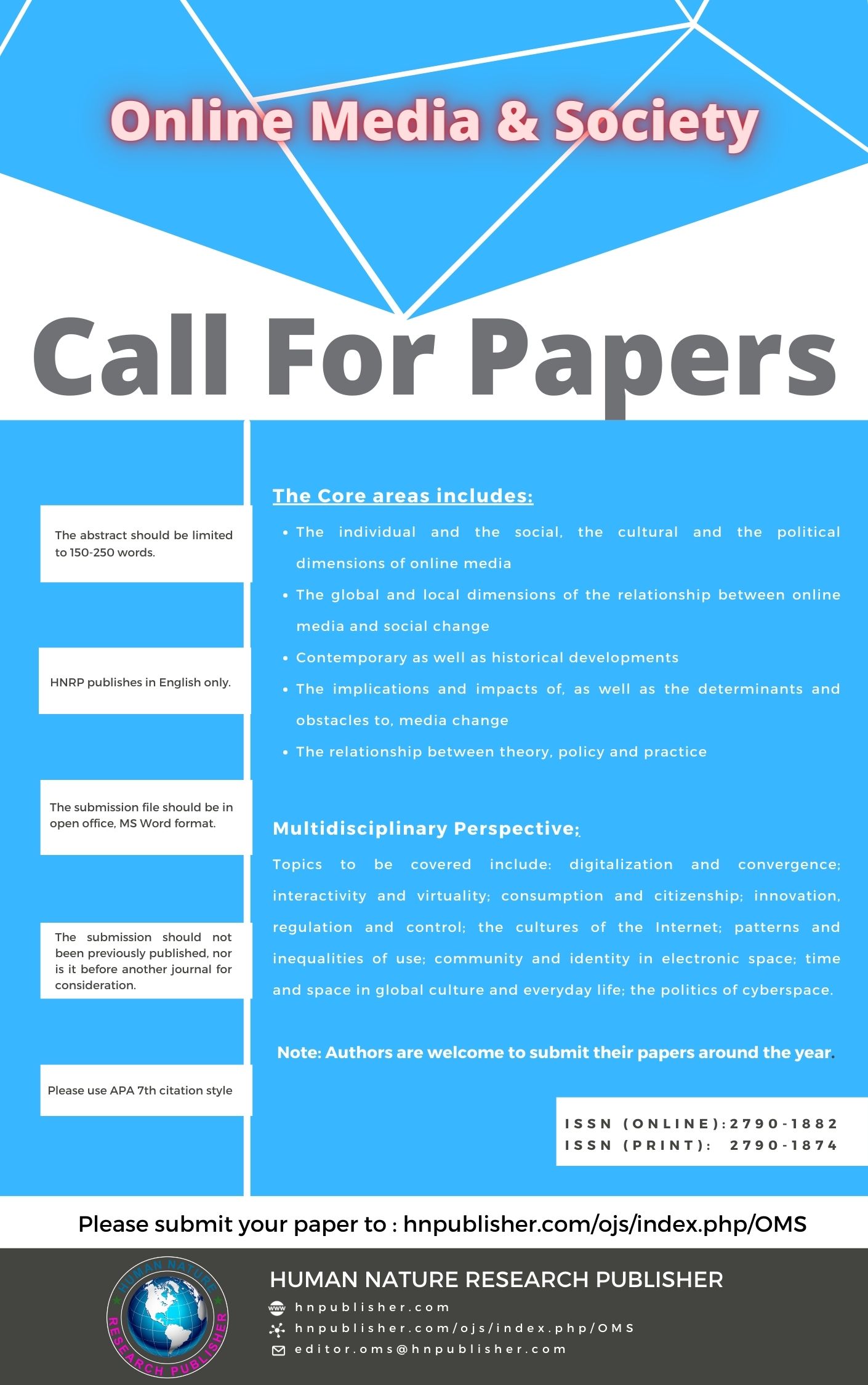Value Orientation of Social Media Consumers: Tolerance for Equality and Equal Opportunities
DOI:
https://doi.org/10.71016/oms/ffvjhz33Keywords:
Tolerance, value orientation, equal rights, equal opportunityAbstract
The pervasiveness of communication technology has made the media the most influential immediate force on the attitudes and values of media consumers. Regarding the impact that media has had on people's attitudes toward women and other social groups that have historically been marginalized or subjected to discrimination there are varying points of view, including optimistic ones that predict rising levels of tolerance and pessimistic ones that predict stable or declining levels of tolerance. Aim: This idea was investigated by analyzing people's opinions toward women, immigrants, and other religious groups. A distinction is made between the high media users and low media users and their socioeconomic status to analyze the media influence on attitudes. Methodology: A cross-sectional quantitative method was adopted for this study. A convenience sampling method was utilized to get the representative data from 300 people. A structured questionnaire was used as a tool for data collection. Key Findings: Tolerance for religious sects and minorities has increased across the board among high media users, and young people are also more open to religious diversity. These patterns largely concur with the upbeat viewpoints. Despite this, we discover that bias still exists among young people, as evidenced by the fact that a sizable portion of respondents still have trouble accepting women's independence in life and blame it for the moral decline of society. Conclusion: In the case of national security, which most respondents placed national security above the rights of immigrants and agreed to deport them immediately, intolerance toward immigrants /refugees appears strong. These findings are thus more in line with the expectations of pessimistic life perspectives, which believe media to be the cause of moral deterioration in society.
Downloads
Published
Issue
Section
License
Copyright (c) 2022 Dr. Ifra Iftikhar, Dr. Bushra Yasmeen, Muhammad Kamran Khan (Author)

This work is licensed under a Creative Commons Attribution-NonCommercial 4.0 International License.








